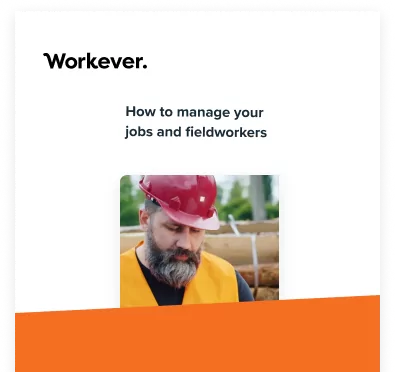Updated: Monday 25th January 2021
With Brexit behind us, the effects of the deal are beginning to come to light for tradespeople and the service industry. This industry makes up 80% of the UK’s economic output and brings in huge amounts of revenue for the country every single year.
For the last year, there has been much anticipation over the effect Brexit would have on the service industry and the tradespeople that serve it. Today we are looking into how the Brexit deal agreed in December is now affecting those individuals and businesses in the UK.
The Impact On Construction
In the build-up to the Brexit deadline, there were many fears over how it would affect the UK’s construction industry. When Boris Johnson finalised the deal with the EU in December 2020, many construction businesses were relieved with the terms. However, there are still some concerns about the availability of construction materials for businesses and tradespeople.
The importation of building materials from the EU is still permitted without any additional tariffs. This means that many building firms and tradespeople won’t end up overpaying for their building materials, which had been a concern in earlier months. The deal also means that there is less chance for the availability of commonly used materials to decline.
However, there are a few things to consider when it comes to construction materials, tradespeople and Brexit changes;
- Construction Deal Will Reduce Delays
Before the current trade deal was agreed, many in the industry were concerned over how a no-deal Brexit could have impacted imports. As ports were experiencing standstill queues during December, and individuals began to stockpile, these worries become all the more real.
Thankfully, the trade deal that has been reached means that goods, such as building materials, can continue to move quickly through the ports. Now in January, the ports are running smoothly again, and there are few delays being experienced by tradespeople waiting for materials.
- Strains On Supply Chains
Despite the trade deal, there are still some strains on the supply chains for construction materials. This is not entirely a result of Brexit and is also influenced by many factories slowing their production due to COVID-19.
Some experts in the industry feel that the Brexit deal was made too late in the day as some suppliers are feeling the impact of prolonged indecision. Not only that, but there is some vagueness and hesitation around trade services which is causing concern.
- Concerns Over Price Increases
One of the most major worries over the Brexit deal was that it would cause the price of building materials to spike. Because tariff-free imports have been agreed, most of this risk has been mitigated, and prices are expected to remain steady.
The usual annual price increases on all building materials are still likely to happen, but not due to Brexit concerns.

The Brexit deal offers a level of reassurance to the construction industry.
The Impact On Employees
Many local tradespeople and businesses have made the most of the freedom of movement around Europe that the EU policies provided. However, since the Brexit vote, there has been a steady decline in tradespeople coming to the UK from the EU. These EU immigrants have previously helped close the skill gap in the industry and are employed by local businesses.
There have been serious concerns that Brexit would lead to a shortage of tradespeople in construction and other service industries. Since January 2021, freedom of movement between the EU and UK has ended, and the Brexit deal has bought in a new immigration system for residents of all countries. Tradespeople from EU countries who are already working in the UK can apply for the EU Settlement Scheme.
The new immigration system means that businesses are able to recruit from outside the UK, but only if the employee meets certain requirements and applies for permission. This could cause issues for the service industry who rely heavily on tradespeople from other countries to fill the skill gap.
Workers are now required to meet a certain level of ‘points’ in order to gain a visa for working in the UK, and these points are based on skills, experience and English language skills. Because of these new regulations, we expect tradespeople to be forced to charge more for their services and work solely with skilled UK workers.
There is also likely to be more of a focus on employee retention among businesses, as hiring new tradespeople will be more challenging than ever.

Businesses will prioritise staff retention as recruiting may become harder.
The Impact On Regulations
The service industry, just like many other industries, has been required to follow many standards and regulations. The majority of these regulations were European standards, set out by the EU. There have been some questions over what Brexit would mean for these regulations and how it would impact tradespeople and businesses.
The Construction Products Regulation (CPR) sets out rules which cover construction products, and there have also been regulations for construction and other trade industries.
The UK has chosen to harmonise its standards alongside the EU standards, which means that there is little change for tradespeople. As soon as the UK left the EU and the transition period was over, the new UK standards came into force. Because these are the same as the EU standards, there is little or no change. It is still recommended that all tradespeople check the specific standards that impact their work, to be sure there have been no recent changes.
It is always the responsibility of the tradesperson or business to ensure all safety standards are being met. Tradespeople have a responsibility to protect their own health and safety, as well as that of the people affected by their work.

Make sure you’re clear on the regulations that are in place.
Will We See Further Changes?
The aspects mentioned above are just a few of the ways that Brexit is likely to impact tradespeople and the service industry going forward. The Brexit deal is still in its very early days, and the long term effects of it are yet to be seen.
The biggest areas that are likely to be impacted are recruitment and the availability of cheaper labour from EU immigrants. However, it is good news for tradespeople that price increases, supply chain issues and material delays are, so far, not causing major concerns.

